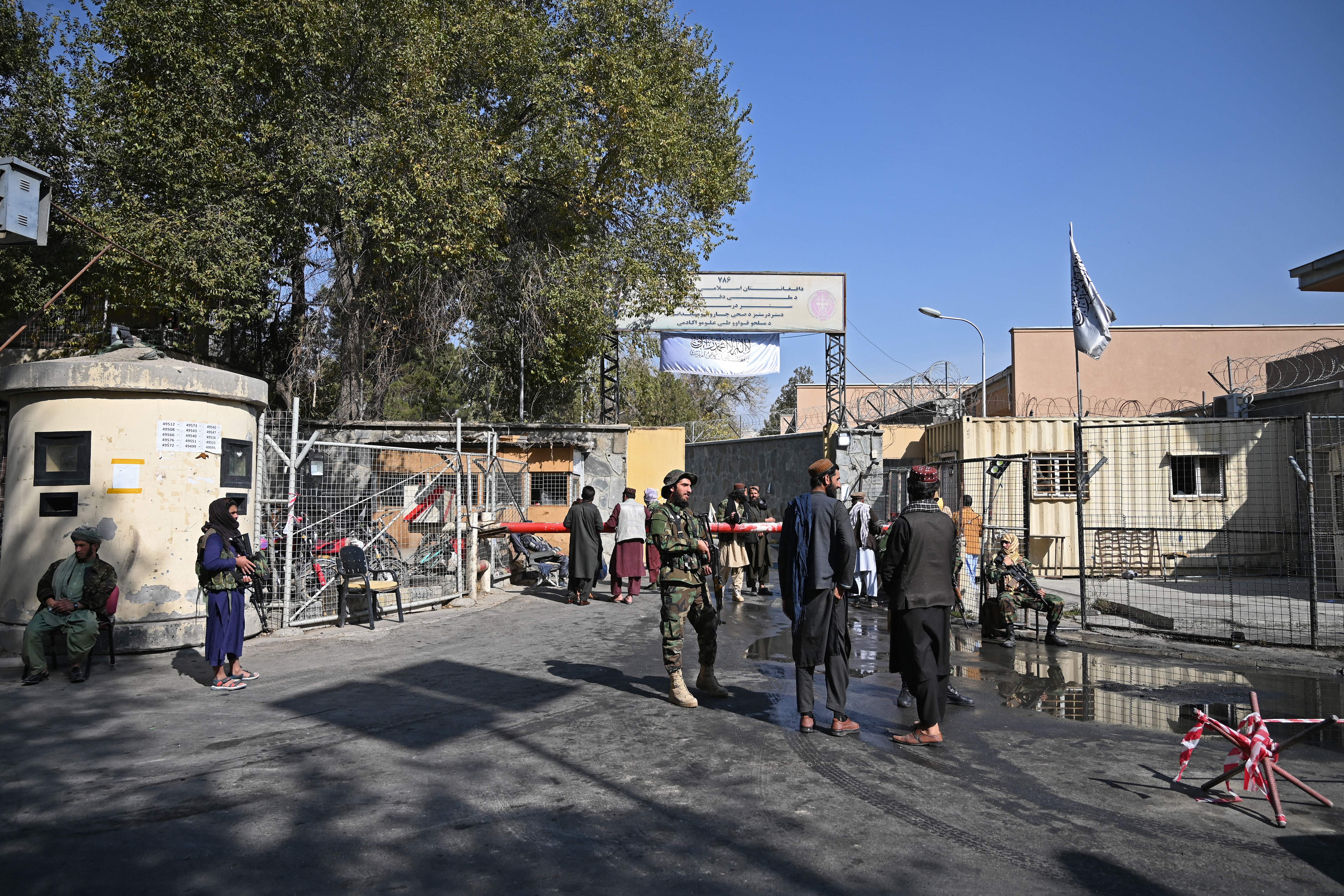Tehran sees the rise of ISIS in Afghanistan as a serious threat. Not only does the terrorist group’s anti-Iranian and anti-Shia position threaten Iran’s interests in Afghanistan, but officials in Tehran are concerned about ISIS’ ability to recruit among Iranian Sunnis. What are Iran’s key worries about ISIS in Afghanistan? How is ISIS today different from the challenge posed by al-Qaeda in Afghanistan in the 1980s and 1990s? And what can Iran and other regional and international actors do to push back against the rise of ISIS in the region? To discuss these issues, MEI is delighted to host an expert panel co-moderated by Alex Vatanka, Director of the Iran Program and Senior Fellow with the Frontier Europe Initiative, and Marvin Weinbaum, Director of Afghanistan and Pakistan Studies.
Speakers
Javid Ahmad
Non-Resident Scholar, MEI
Fatemeh Aman
Non-Resident Scholar, MEI
Alex Vatanka
Director of Iran Program and Senior Fellow, Frontier Europe Initiative, MEI
Marvin G. Weinbaum, moderator
Director, Afghanistan and Pakistan Studies, MEI
Five Key Takeaways
- ISIS in principle is deliberately anti-Shia and anti-minority: This directly threatens Iran as a majority Shia country. With ISIS terrorists surrounding nearly all Iranian borders, they are an encircled threat to Iran, according to Javid Ahmad.
- Iran fears that the Taliban could become a proxy of its rivals: Iran cannot compete with countries allied with the Taliban. Unlike Iraq and Syria that have Shia religious holy sites that welcome Iran’s military forces to defend them, there are no religious sites in Afghanistan. Furthermore, they do not want Iran’s forces there, meaning Iran will not be able to deploy troops to Afghanistan. With the Taliban killing more religious and ethnic minorities and the worsening economic situation in Afghanistan possibly pulling the country into a civil war, Iran wants to prevent that civil war from spilling over and ISIS-like groups from coming into Iran, said Fatemeh Aman.
- Islamic State Khorasan (ISK) targets Iran’s minority Sunni population: From Iran’s point-of-view, the Taliban was originally a non-threatening Afghan nationalist movement. However, with reports of non-Afghan ISK senior members and international jihadists,it potentially means that ISK will have more success in recruiting in Iran’s significant Sunni minority, said Javid Ahmad.
- Iran views the ISK as a threat to Iran’s economic stability: Over the last decade, Iran has reached out to the Taliban to work with them to fight the Islamic State. Iran also hopes to hold onto Afghanistan as a zone of economic profit. This is something Iran is desperately hanging on to as much as possible. ISK starting a war will take a huge blow to Iran's pockets and internal stability, especially since they cannot take in an influx of Afghan refugees, said Alex Vatanka.
- Iran has political security concerns: Iran will find any and all partners in fighting ISK: This has led to improved relations with Tajikistan. Present throughout Central Asia, ISK is the enemy not only for Iran but Tajiks, Russians and Chinese. Uniting on that front, there is a growing regional collaboration with the collective understanding that the ISK is a regional threat, said Alex Vatanka.
Detailed Speaker Biographies
Javid Ahmad
Javid Ahmad is a Non-Resident Scholar at the Middle East Institute. He is also a Senior Fellow with the Atlantic Council’s South Asia Center, focusing on security and counterterrorism, transregional militancy, and illicit networks. He also currently serves as a member of the board of advisors for GardaWorld Federal Services. From 2020 to 2021, he served as Afghanistan’s ambassador to the United Arab Emirates. Previously, he was a Non-Resident Fellow with the Modern War Institute at the U.S. Military Academy, where he provided tailored assessments on violent extremism, insider threats, political risk and counterterrorism financing issues in South Asia and the Middle East. He has worked with the U.S. defense community, including General Dynamics, where he provided security and macroeconomic analysis and assessments to U.S. government and business clients.
Fatemeh Aman
Fatemeh Aman is a Non-Resident Senior Fellow at the Middle East Institute. She has written on Iranian, Afghan, and broader Middle Eastern affairs for over 20 years. She has worked and published as a journalist, analyst, and previously as an Atlantic Council Non-Resident Senior Fellow. Fatemeh has advised the U.S. government and non-governmental organizations on Iranian regional policies. Fatemeh was a TV writer, producer and anchor at Voice of America, and, prior to that, a correspondent with Radio Free Europe/Radio Liberty since 1999.
Alex Vatanka
Alex Vatanka is the founding Director of the Iran Program at the Middle East Institute. He specializes in Middle Eastern regional security affairs with a particular focus on Iran. He was formerly a Senior Analyst at Jane’s Information Group in London. Alex is also a Senior Fellow in Middle East Studies at the U.S. Air Force Special Operations School (USAFSOS) at Hurlburt Field and teaches as an Adjunct Professor at DISAS at Wright-Patterson Air Force Base.
Marvin G. Weinbaum
Marvin G. Weinbaum is professor emeritus of political science at the University of Illinois at Urbana-Champaign and served as analyst for Pakistan and Afghanistan in the U.S. Department of State’s Bureau of Intelligence and Research from 1999 to 2003. He is currently director for Afghanistan and Pakistan Studies at the Middle East Institute. His research, teaching and consultancies have focused on the issues of national security, state building, democratization, and political economy in Afghanistan and Pakistan.
Photo by WAKIL KOHSAR/AFP via Getty Images












